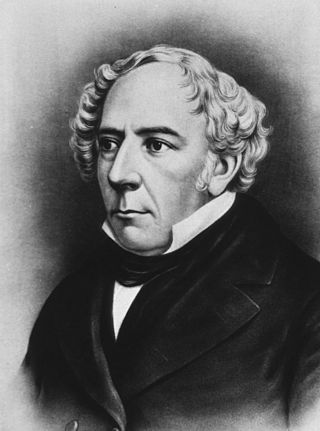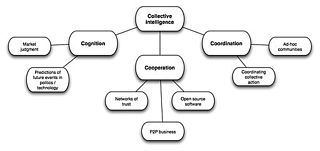Related Research Articles
Epistemology is the branch of philosophy concerned with knowledge. Epistemologists study the nature, origin, and scope of knowledge, epistemic justification, the rationality of belief, and various related issues. Debates in (contemporary) epistemology are generally clustered around four core areas:
- The philosophical analysis of the nature of knowledge and the conditions required for a belief to constitute knowledge, such as truth and justification
- Potential sources of knowledge and justified belief, such as perception, reason, memory, and testimony
- The structure of a body of knowledge or justified belief, including whether all justified beliefs must be derived from justified foundational beliefs or whether justification requires only a coherent set of beliefs
- Philosophical skepticism, which questions the possibility of knowledge, and related problems, such as whether skepticism poses a threat to our ordinary knowledge claims and whether it is possible to refute skeptical arguments

Immanuel Kant was a German philosopher and one of the central Enlightenment thinkers. Born in Königsberg, Kant's comprehensive and systematic works in epistemology, metaphysics, ethics, and aesthetics have made him one of the most influential and controversial figures in modern Western philosophy, being called the "father of modern ethics", "father of modern aesthetics" and, by bringing together rationalism and empiricism, the "father of modern philosophy".

Thomas Reid was a religiously trained Scottish philosopher best known for his philosophical method, his theory of perception, and its wide implications on epistemology, and as the developer and defender of an agent-causal theory of free will. He also focused extensively on ethics, theory of action, language and philosophy of mind.

Sir William Hamilton, 9th Baronet FRSE was a Scottish metaphysician. He is often referred to as William Stirling Hamilton of Preston, in reference to his mother, Elizabeth Stirling.

John Henry McDowell, FBA is a South African philosopher, formerly a fellow of University College, Oxford, and now university professor at the University of Pittsburgh. Although he has written on metaphysics, epistemology, ancient philosophy, nature, and meta-ethics, McDowell's most influential work has been in the philosophy of mind and philosophy of language. McDowell was one of three recipients of the 2010 Andrew W. Mellon Foundation's Distinguished Achievement Award, and is a Fellow of both the American Academy of Arts & Sciences and the British Academy.

Sir Peter Frederick Strawson was an English philosopher. He was the Waynflete Professor of Metaphysical Philosophy at the University of Oxford from 1968 to 1987. Before that, he was appointed as a college lecturer at University College, Oxford, in 1947, and became a tutorial fellow the following year, until 1968. On his retirement in 1987, he returned to the college and continued working there until shortly before his death.
Compatibilism is the belief that free will and determinism are mutually compatible and that it is possible to believe in both without being logically inconsistent.

Benedetto Croce, KOCI, COSML was an Italian idealist philosopher, historian, and politician who wrote on numerous topics, including philosophy, history, historiography, and aesthetics. A political liberal in most regards, he formulated a distinction between liberalism and "liberism". Croce had considerable influence on other Italian intellectuals, from Marxists to Italian fascists, such as Antonio Gramsci and Giovanni Gentile, respectively.

In aesthetics, the sublime is the quality of greatness, whether physical, moral, intellectual, metaphysical, aesthetic, spiritual, or artistic. The term especially refers to a greatness beyond all possibility of calculation, measurement, or imitation.
Early modern philosophy The early modern era of philosophy was a progressive movement of Western thought, exploring through theories and discourse such topics as mind and matter, is a period in the history of philosophy that overlaps with the beginning of the period known as modern philosophy. It succeeded in the medieval era of philosophy. Early modern philosophy is usually thought to have occurred between the 16th and 18th centuries, though some philosophers and historians may put this period slightly earlier. During this time, influential philosophers included Descartes, Locke, Hume, and Kant, all of whom contributed to the current understanding of philosophy.
Linda Trinkaus Zagzebski is an American philosopher. She is the Emerita George Lynn Cross Research Professor, as well as Emerita Kingfisher College Chair of the Philosophy of Religion and Ethics, at the University of Oklahoma. She writes in the areas of epistemology, philosophy of religion, and virtue theory.
Philosophical realism – usually not treated as a position of its own but as a stance towards other subject matters – is the view that a certain kind of thing has mind-independent existence, i.e. that it exists even in the absence of any mind perceiving it or that its existence is not just a mere appearance in the eye of the beholder. This includes a number of positions within epistemology and metaphysics which express that a given thing instead exists independently of knowledge, thought, or understanding. This can apply to items such as the physical world, the past and future, other minds, and the self, though may also apply less directly to things such as universals, mathematical truths, moral truths, and thought itself. However, realism may also include various positions which instead reject metaphysical treatments of reality entirely.
Christopher Janaway is a philosopher and author. He earned degrees from the University of Oxford. Before moving to Southampton in 2005, Janaway taught at the University of Sydney and Birkbeck, University of London. His recent research has been on Arthur Schopenhauer, Friedrich Nietzsche and aesthetics. His 2007 book Beyond Selflessness: Reading Nietzsche's Genealogy focuses on a critical examination of Nietzsche's On the Genealogy of Morals. Janaway currently lectures at the University of Southampton, which in the past has included a module focusing on Nietzsche's Genealogy. That module is now convened by Janaway's colleague, Aaron Ridley.

Common sense is sound, practical judgement concerning everyday matters, or a basic ability to perceive, understand, and judge in a manner that is shared by nearly all people.
Brian P. Copenhaver is Distinguished Professor Emeritus of Philosophy and History at The University of California, Los Angeles. He teaches and writes about philosophy, religion and science in late medieval and early modern Europe.
Transcendental humanism in philosophy considers humans as simultaneously the originator of meaning, and subject to a larger ultimate truth that exists beyond the human realm (transcendence). The philosophy suggests that the humanistic approach is guided by “accuracy, truth, discovery, and objectivity” that transcends or exists apart from subjectivity.
The History of Philosophy Quarterly (HPQ) is a peer-reviewed academic journal dedicated to the history of philosophy. The journal is indexed by PhilPapers and the Philosopher's Index.
Jennifer. Nagel is a Canadian philosopher at the University of Toronto. Her research focuses on epistemology, philosophy of mind, and metacognition. She has also written on 17th century (Western) philosophy, especially John Locke and René Descartes.

Alan Richard White was an analytic philosopher who worked mainly in epistemology, the philosophy of mind, and, latterly, legal philosophy. Peter Hacker notes that he was "the most skillful developer of Rylean ... ideas in philosophical psychology" and that "if anyone surpassed Austin in subtlety and refinement in the discrimination of grammatical differences, it was White." Richard Swinburne remarks that "during the heyday of 'ordinary language philosophy' no tongue practised it better."
References
- ↑ Davis, William C. (3 July 2016). "Thomas Reid on mind, knowledge, and value". British Journal for the History of Philosophy. 24 (4): 788–790. doi:10.1080/09608788.2016.1176898. ISSN 0960-8788. S2CID 147708749.
- ↑ Gur Arye, Adam Weiler (June 2016). "Rebecca Copenhaver and Todd Buras (eds.), Thomas Reid on Mind, Knowledge, and Value". Journal of Scottish Philosophy. 14 (2): 190–193. doi:10.3366/jsp.2016.0129. ISSN 1479-6651.
- ↑ Rubini, Rocco (2014). "Brian P. Copenhaver and Rebecca Copenhaver, eds. From Kant to Croce: Modern Philosophy in Italy, 1800–1950. Lorenzo da Ponte Italian Library Series. Toronto: University of Toronto Press, 2012. ix + 860 pp. $115. ISBN: 978-1-4426-4266-9". Renaissance Quarterly. 67 (1): 238–240. doi:10.1086/676191. S2CID 163458738.
- ↑ Hanley, Ryan Patrick (14 December 2014). "Review of The Oxford Handbook of British Philosophy in the Eighteenth Century". Notre Dame Philosophical Reviews. ISSN 1538-1617.
- ↑ Buras, J. Todd (2005). "The Nature of Sensations in Reid". History of Philosophy Quarterly. 22 (3): 221–238. ISSN 0740-0675. JSTOR 27745026.